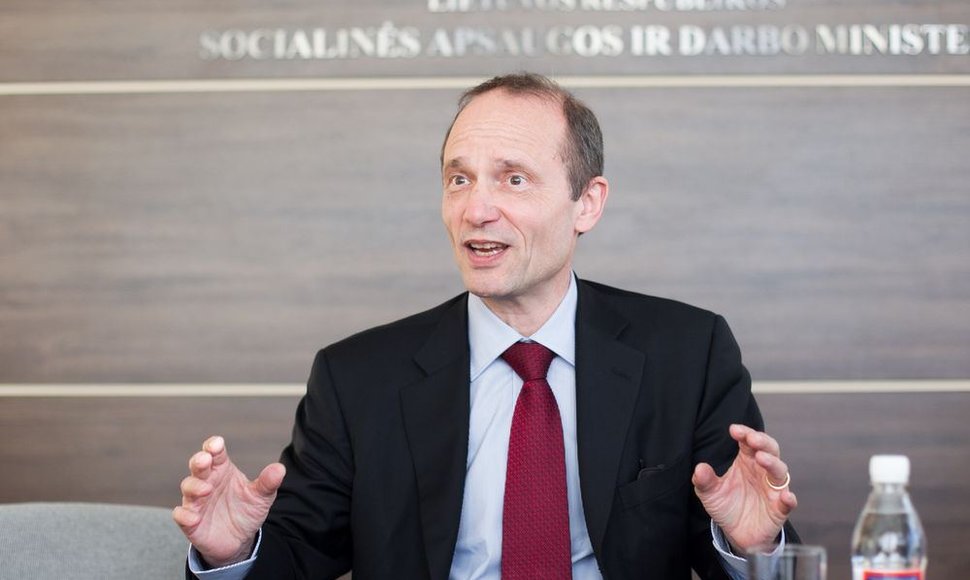Morten Kjaerum, the head of the agency, expressed hope that the events to be held in Vilnius this year would encourage member-states to start reporting and analyzing hate crimes – offences against victims motivated by their belonging to a group, mainly on the basis of religion, nationality, or sexual orientation.
A conference on fundamental rights will take place in Vilnius in November. It should bring together 300-400 experts from EU governing and law-enforcement institutions, non-governmental organizations.
In an interview to BNS, Kjaerum said that research carried out by the institution revealed homophobia and anti-Semitism to be still widespread in Europe.
During a survey of more than 90,000 people, a fourth of homosexual respondents said they had been attacked at least once over the past five years. The agency intends to publish complete data of the survey in May.
"25 percent report that within the last five years they have been physically assaulted. If you look at the group of transgender people, then it rises to more than a third - 34-35 percent of transgender people say they have been physically assaulted. These are very dramatic figures and underline the seriousness why we have at EU level seriously address the hate crime," he told BNS.
Kjaerum has emphasized that the scope of such crimes in the majority of countries can only be established by way of surveys, as the police do not list them as a separate type of crimes.
"Actually, only four member states have some more detailed registration of hate crime. During the (Lithuanian) presidency, there can be high-level recognition of the need to register hate crime in the member states," he said.
In Kjaerum's words, discriminated social groups have been greatly affected by the economic crisis, which forced countries to take austerity measures: this led to hostility towards immigrants, and slashed social spending made some society members even more vulnerable.
"In some member-states, there seems to be an acceleration - at least what have been reported - of severe attacks on migrants, on Roma. We have seen an increase in support for extremist parties building on negative stereotyping on migrants, Roma", he said.
"When cuts in social budgets are being made, member-states run the risk of cutting so much that, for example, children no longer get access to the school bus and thereby an access to the education what we have seen in several member-states," Kjaerum noted.
In his words, the crisis also raised extreme exploitation on the labor market.
Commenting on sexual minority rights, the head of the EU agency said he had observed progress in Lithuania and across Europe, but added that problems still existed.
"When we look across Europe on the LGBT issues, it seems that things are moving forward. If you go back in Lithuania some years, it was almost impossible to have an LGBT pride parade. It is easier today. That said, the problems are still very big. So get my double message here," he said.
Lithuania is scheduled to take over six-month EU presidency from Ireland on July 1. Over the six months, the country intends to hold about 3,000 meetings in Brussels and Luxembourg, in addition to about 180 presidency events in Lithuania, including at least 16 ministerial-level sessions.
The presiding country is authorized to head task forces where representatives of all member-states discuss EU matters.
Kjaerum noted that revision of a framework decision on racism and xenophobia would be among the issues Lithuania would have to coordinate.












